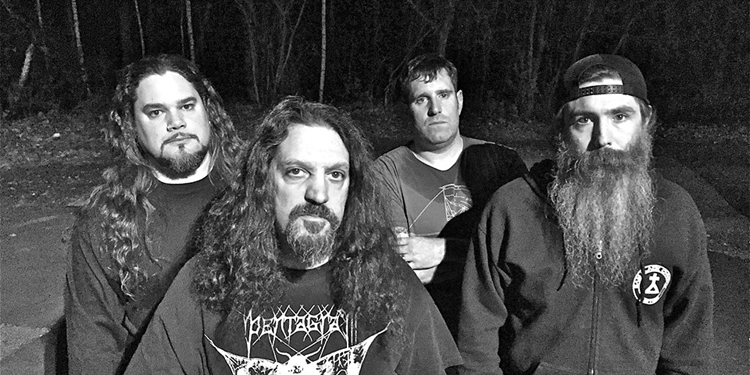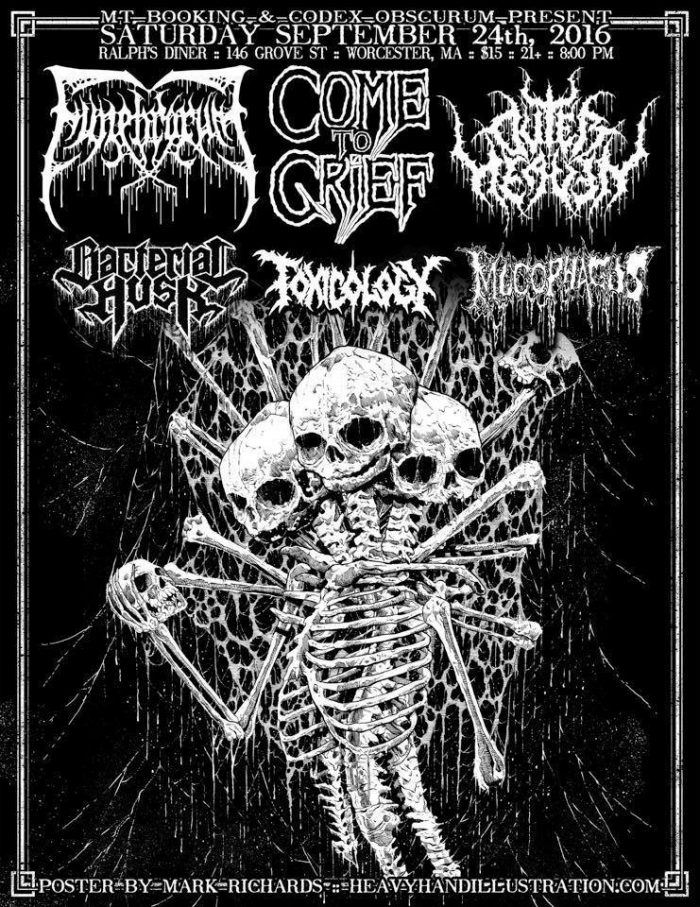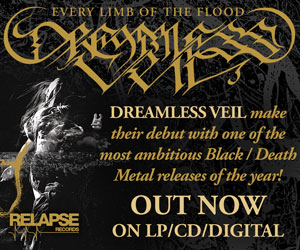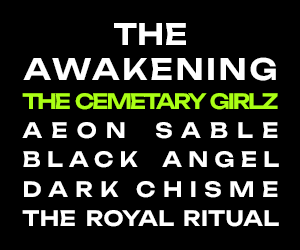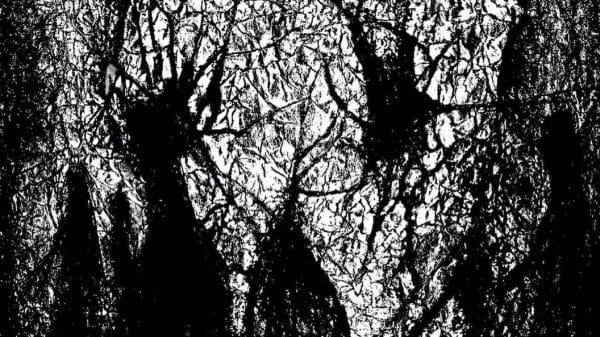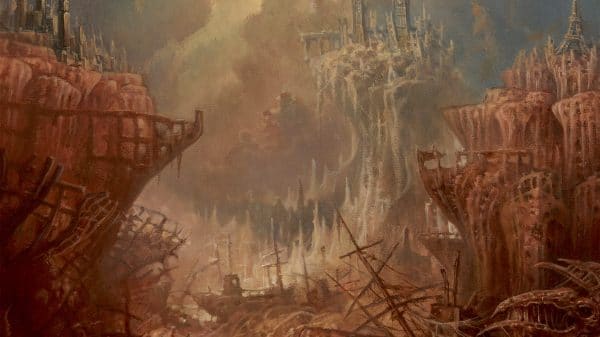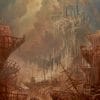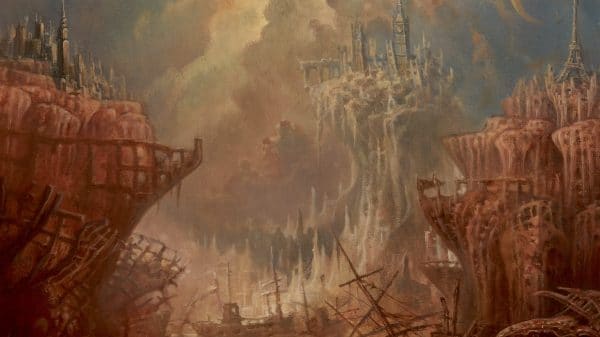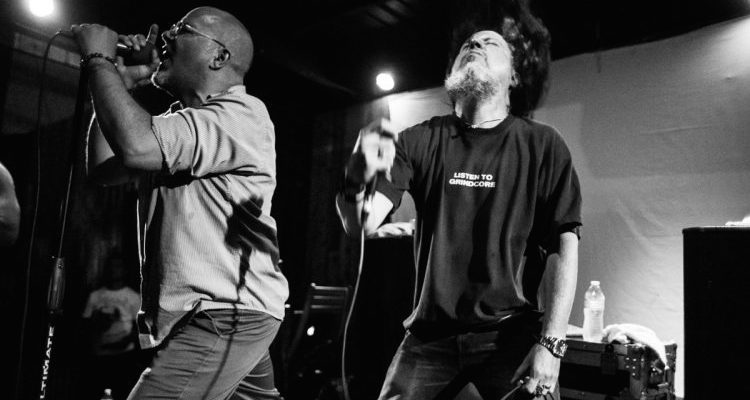Nathan Tucker interviews Come to Grief
In 1994, Grief released Come To Grief, one of the heaviest and slowest albums around at the time. It marked a change in style and speed that only a handful of bands could combat with. After about seven years of silence, original guitar player Terry Savastano has branched out and formed Come To Grief, a band rooted in the early Grief releases. While their roots may be in the crushing depressive sounds they created in the early and mid 90’s, they have maintained focus and inspiration on writing new songs. I caught up with the four-piece before their set at the NOLA Doom Fest.
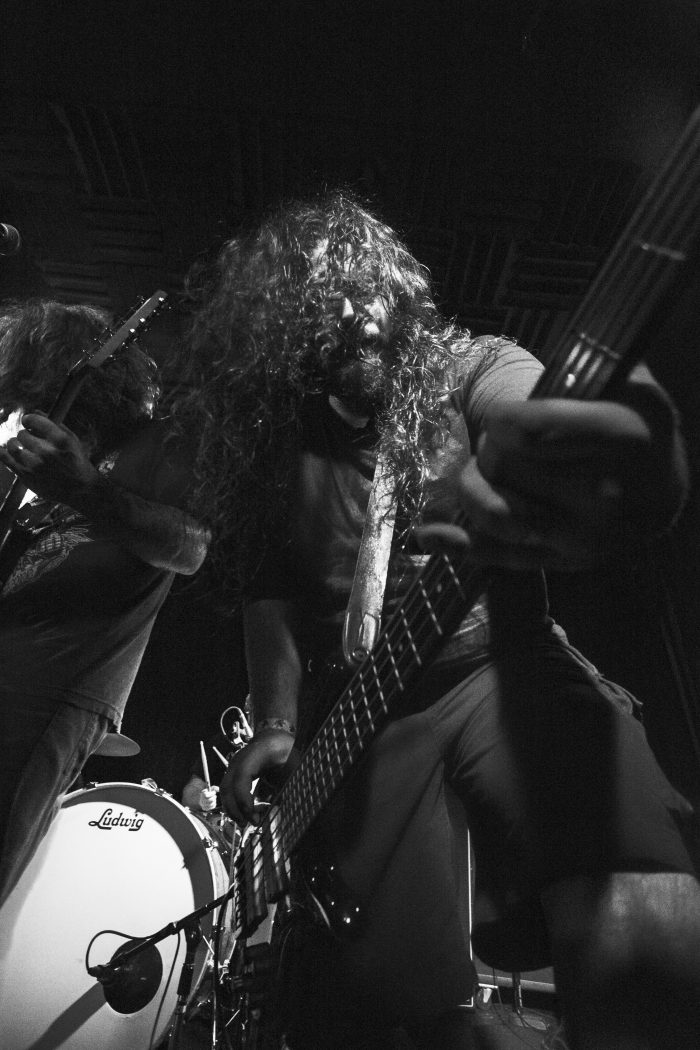
Let’s start with a basic background, who’s in the band now?
Johnathan Hébert (vocals/guitar): Well…I’ve been in a lot of bands over the years, and nothing probably too noteworthy. (laughs)
Chris Conlon (drums): I played in Grief back in 1999. I played on …And Man Will Become the Hunted, He’s No Good To Me Dead and I also played on a bonus track on the rerelease of Come To Grief, but yeah, before that I was 19 when I joined and I was honored to play with them at that young of an age.
Justin Christian (bass): The most notable band I played in was Morgion back in 2000-2001, but I had known them since 1992. We toured through Europe and North America. In 2004, when we broke up, I did Keen of the Crow with Rhett Davis from Morgion. We did an ep and full length. I got together with a couple of the guys from Morgion and we did a band called Dust Flow. We recorded a shit ton, but never released any of it. I moved from Southern California to New England with my family, my newborn daughter and my wife, who’s from the area. Finally, I started Onera, which is my newest band, very progressive and melodic and while we were rehearsing and auditioning vocals I met Terry. I had already met Jeff Hayward (Original Grief Guitar/Vox) on the west coast. I told Terry, “Look, if you ever wanted to do a Grief thing, I know Jeff isn’t, but if you ever wanted to I’d love to play bass.” I’d been a fan since ’92, I have the original yellow press of Dismal, numbered from his house address.
Terry (guitar): Formalities aside, I’m Terry, I play guitar and am a founding member of Grief. I’d like to interject how the whole Orange County/LA scene embraced Grief the first time we played there in 1993. We made a lot of really good friends there.
Justin: Ironically enough, I never got to see Grief back then but I bought the early records. Loved it. Back then it was very different. Other than Eyehategod, there was nothing so sludgey, so slow, so…miserable. Anyway, I told Terry if you were ever interested in doing something I’d be down. He said, “Actually I am! It’s gonna be mostly early songs that I wrote and it will be Come To Grief, not Grief.” Since January we’ve been touring, writing new songs and just loving it. People are freaking out and it’s awesome. We’ve been adding both new and old songs along the way. Which is huge, because the ultimate goal is to eventually get it down to less of a Grief review and bring in new shit. Come To Grief is not a reunion band; we’re all friends with the original members. What we’re doing is different and there will be a new CTG release in early 2017. So here we are, proud to be in New Orleans, it’s our first time since…
Terry: Yeah, the last time Grief played here was in 1995 with Extreme Noise Terror and Soilent Green at Zeppelins.
Jonathan, how did you meet Terry?
Jonathan: We met at a club in Portland, Maine.
Terry: Like so many other people, we became friends on Facebook. At the time, I roadied for the band Psycho, they’re all super good friends of mine, and one night at a show Johnny, their guitar player, was on stage and said, “This one goes out to Terry from Grief.” All of a sudden I saw Jonathan, and he turned his head and his eyes lit up. He came over to me later and introduced himself, “Hey we’re friends on Facebook now! Is Grief gonna get back together?” And I told him that we were planning on bringing something back and we stayed in touch. He told me he could sing them songs no problem. So when we started to practice, it was just three dudes, Me, Justin and Jonathan; we didn’t have a drummer at the time.
Justin: And we got tight, too.
Terry: Yeah, like how the fuck do you get tight playing this type of music without a drummer? “One, two, three! Baaaaaa” (Terry making a sweeping air guitar motion and banging his foot).
Justin: During this time, Jonathan stepped up and really went out of his way to find us a drummer.
Terry: It felt like we had looked everywhere, but just couldn’t find the right person.
Jonathan: I got in contact with Chris and he was interested.
Terry: I knew there was a drummer right under our noses and when Chris answered the call, goddamn dude, I knew it was gonna be fucking sick.
Justin: Chris was the best thing that could’ve happened, without him we wouldn’t have pulled together so quickly and so tightly.
Terry: Chris was so enthusiastic to play, on our first rehearsal we did six songs.
Justin: We realized how real this project was about to get once both Chris and Jonathan were in the band. In a matter of months, we booked our first show, and were playing our first new song.
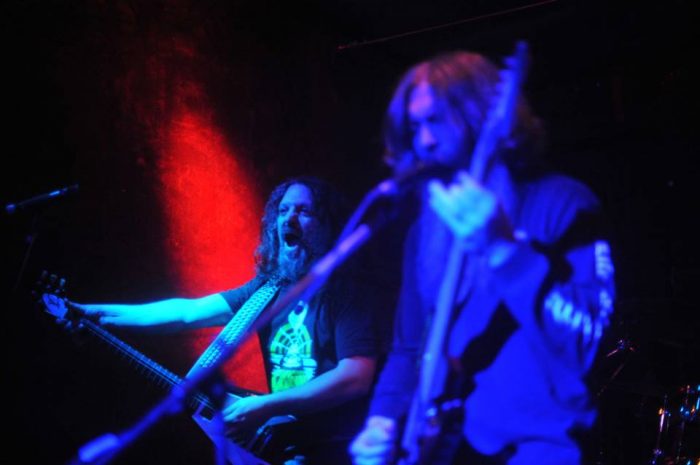
What was that first practice together like as a four-piece?
Chris: Since parting ways back in the day with Grief, I had always wanted a chance at it again. So yeah, the first practice I had a lot of pressure on myself leading up to it. Once we started getting into the songs, things just started to really flow with the other guys. I remember saying to myself, “Oh shit, this sounds killer and can work.” Overall, this for me is a chance to play this music with more focus and drive than before when I was younger.
Jonathan: By the time Chris came to practice the first time, Terry, Justin and I had been jamming for about 6 months, with just the 3 of us, no drummer. It was getting a little discouraging. So, when Chuck first showed up, we were all hopeful, but a little apprehensive. But as soon as we started playing, we knew we had found our guy.
Justin: He had been listening to to the list of songs we sent him. There were definitely songs that we all would need plenty of practice on. Chuck is self-aware and professional like that. Things sounded great right away. The man beats the piss out of drums. It’s pretty crazy. He goes through several pairs of sticks in a set, that’s why we call him “Wood Chuck.”
Chris, did you play Grief’s earlier songs while you were in the band prior?
Chris: For me, when I was playing in the band back in the early 2000’s, we didn’t reach back and play the early tunes because we were so focused on …And Man Will Become the Hunted.
Terry: It was a different era for the band back then.
Chris: Yeah, so being in the band now, I’m finally doing all the original songs I love from way back.
Justin: Come to Grief celebrates everything up to the first album. We’re doing the 7”, the first lp, first album, but more importantly we’re working on the new songs.
Terry: The latest song that we do is “Ostrich,” but that’s an old song. It was originally recorded for a comp that never came out back in 1996. I can’t even remember who was doing it or why it was never released.
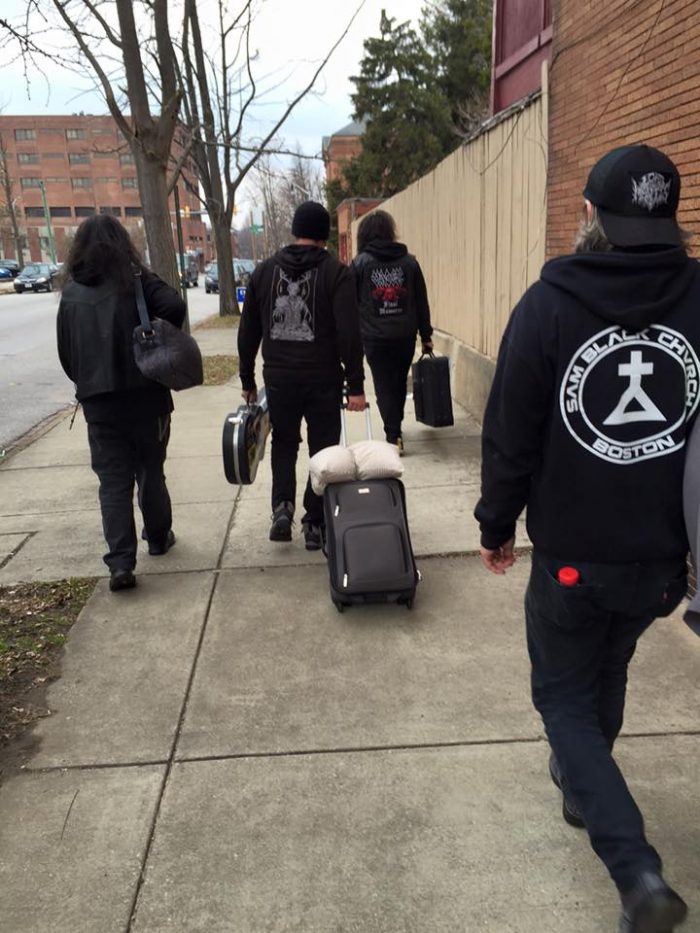
Who wrote the majority of the lyrics for the newer songs?
Terry: The new songs? So far, I wrote the words to the three new songs we performed at the fest. I give Jonathan the words almost finished and he just refines them to make everything fit. He’s got some really good lyrics too, and so does Justin for some songs we are working on next.
A lot has changed for you all personally since those earlier recordings…most of y’all have kids now. How do you incorporate the self-misery that is so prevalent in the early recordings?
Terry: In my particular case, I’m older and I went through some shit. I’m still fucking miserable, but that’s the way the world is. Music makes me the happiest and I wanna do music. When we go home tomorrow at midnight, I’ve gotta wake up at 5:30 and go to fucking work. Get filthy dirty and break my fucking balls. That’s misery.
Chris: We are older, yeah, but the music is coming from the same place.
Justin: The new material is in the same spirit as the earlier material. We pull out influences that maybe weren’t as pronounced, but it absolutely fits in. What’s great now is we’re all writing and arranging together.
Chris: When we write we sit as a group and do it.
Terry: We have three solid tunes that are completely done: the last one we’ve finished which is on our shirt is “No Savior” and tonight will be the first night we play it. Funny thing about that song – the first riff I wrote back in ’93 or ’94. Long story short, Grief played this 4th of July party in ’94 where this kid got his face fucking caved-in by boots and shit. They totally destroyed this fucking dude. Big huge fight, people got arrested and every cop in town was there. While I was waiting for shit to die down between songs I did this riff, and I still have the video from that night. So that’s how the song “No Savior” came about, 22 years later.
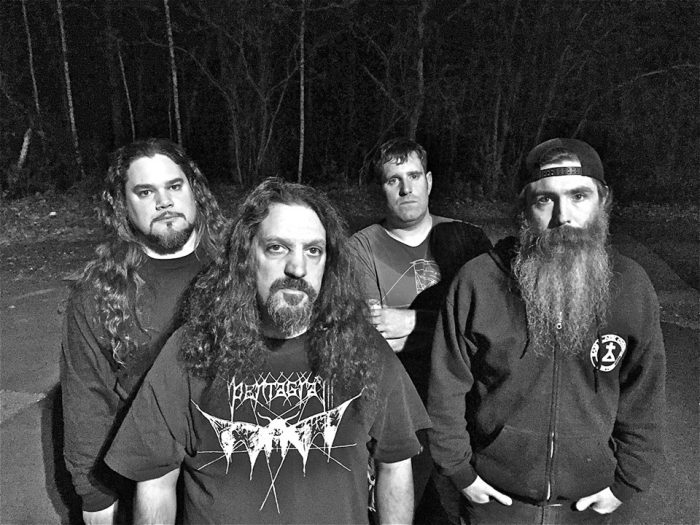
So just to clarify, you are establishing the context of what Come To Grief is by using the earlier albums, correct?
Terry: Exactly, I made it clear right from the beginning that that’s what Come To Grief is about. And a lot of it has to do with respect for the other members that aren’t doing it with me. It’s not because of legality, but because of respect.
John: Yeah, to sum to it up; Terry created the band and the concept and the demos, now we’re expounding off of that.

